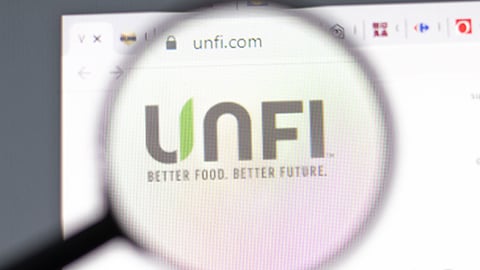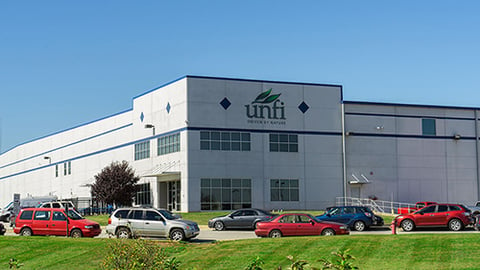UNFI’s Q2 Reflects Strong Customer Demand
During its 13-week second quarter of fiscal 2021 ended Jan. 30, United Natural Foods Inc. (UNFI) reported a net sales increase of 7.1% to $6.89 billion; adjusted EBITDA of $206 million, a 57.3% increase; earnings per diluted share (EPS) of $1, a $1.57 per share increase, and adjusted EPS of $1.25, a $1-per-share increase, from the year-ago period, among other pandemic-driven results.
“Our strong second-quarter results demonstrate that UNFI continues to execute at a high level as we again leveraged strong year-over-year sales increases into even stronger bottom-line growth,” said Steven L. Spinner, the company’s chairman and CEO. “We anticipate the underlying momentum in our business and the increasing benefits we’re realizing from our build out the store strategy to continue for the balance of this fiscal year, and we’re also very pleased to have extended our strong partnership with Whole Foods through September 2027.”
The company’s net sales from continuing operations benefited from strong customer demand from existing and new retailers, including the ongoing benefits of cross selling, and were partly offset by lower sales as a result of previously lost stores, including closings related to three customer bankruptcies that occurred before the pandemic.
The gross margin rate in UNFI’s second quarter of fiscal 2021 was 14.38% of net sales versus 14.26% of net sales in the year-ago period. Retail contributed about 0.13% to the growth in the consolidated gross margin rate, as a result of lower retail promotional spending and the retail segment accounting for a greater percentage of total net sales. Wholesale and the remaining business’s gross margin rate was virtually flat and included the benefits of lower shrink, offset by lower levels of supplier-related income. Included in the gross margin for the second quarter of fiscal 2020 was inventory shrink expense of about $4.2 million, or 0.07% of net sales, in connection with the three pre-pandemic customer bankruptcies noted above.
UNFI’s restructuring-, acquisition- and integration-related expenses in the second quarter of fiscal 2021 were $17.8 million, mainly covering costs related to advisory and transformational activities as the company positions its business for further value creation following the Supervalu acquisition, in addition to costs associated with distribution center consolidations, compared with $36.5 million in the year-ago period, which primarily reflected costs and charges connected with the disposal of existing retail and surplus real estate, distribution network consolidation and employee-related costs.
Net income for the company’s second quarter of fiscal 2021 was $59 million, compared with a year-ago net loss of $30.7 million, which included the $36.5 million of pre-tax restructuring-, acquisition- and integration-related expenses noted above, as well as $24.2 million of pre-tax discontinued operations restructuring, store closure and other charges.
UNFI said that it expects to finish the fiscal year toward the upper end of its previously provided ranges for adjusted EBITDA ($690 million-$730 million) and adjusted EPS ($3.05-$3.55), assuming that food-at-home consumption remains high and exceeds food consumed away from home for the rest of fiscal 2021.
Providence, Rhode Island-based UNFI delivers a wide variety of products to customer locations throughout North America, including natural product superstores, independent retailers, conventional supermarket chains, e-commerce retailers and foodservice customers. The largest publicly traded grocery distributor in America, the company is No. 61 on The PG 100.
The first national certified-organic grocer, Austin, Texas-based Whole Foods has more than 500 stores in the United States, Canada and the United Kingdom. The grocer is No. 24 on The PG 100, while its parent company, Seattle-based Amazon, is No. 2 on the list.











